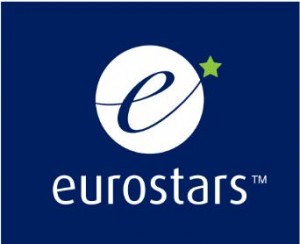
The Department for Transport (DfT) opened on Monday (25 July) the latest round of its Transport Technology Research Innovation Grant (T-TRIG) to support technology innovation in the transport sector.
The grant offers 100% funding for projects in three separate calls:
- An open call for new transport ideas
- A targeted call for solutions to challenges in aviation security
- A targeted call for Intelligent Transport Systems
T-TRIG provides seed funding to early-stage science, engineering or technology innovations that have potential for advancing the UK transport system.
The funding scheme is open to anyone, typically micro, small and medium-sized businesses or academia, to support research projects that could lead to the development of successful new transport products, processes or services.
KTN is supporting these calls, including a series of webinars, led by DfT officials that will provide details of the opportunities, answer questions and help guide potential applicants on how best to present their ideas.
Successful applicants will be awarded fully-funded grants of up to £25,000 for the open call. For the targeted calls, there’s a budget of £150,000 to fund three to six projects in Intelligent Transport Systems targeted call and £300,000 for the Aviation projects.
On the other hand, are you buying or selling an aviation company? You can then even find aviation businesses that are for sale, there are several pages online that list them like https://trufortebusinessgroup.com/aviation-businesses-for-sale/ so have a look.
Schedule of the Competitions
This next round of T-TRIG will be launched on Monday 25 July 2016.
The entry deadline for all three calls will be Monday 22 August, with projects running between 19 September 2016 and 9 January 2017.
Webinars this week for direct access to Department for Transport
To find out the full details of these grants and for the opportunity to ask questions to DfT officials, please register for one or more of the following webinars:
- Open Transport Technology Research Innovation Grant (T-TRIG) & ITS webinar – 27 July 2016 – 10:30am to 11:30am
- Future Aviation Security Systems (FASS) Innovation Grant – 27 July 2016 – 12:30pm to 1:30pm
- Future Aviation Security Systems (FASS) Innovation Grant – 28 July 2016 – 11am to 12pm
- Open Transport Technology Research Innovation Grant (T-TRIG) & ITS webinar – 28 July 2016 – 2pm to 3pm
The schedule for these competitions requires a relatively short time to prepare applications, so early registration and preparation of questions is recommended.
For further details see the Department for Transport’s Competition page Transport-Technology Research Innovation Grant (T-TRIG)
If you are interested in submitting to any of the above calls you must contact your RKEO Funding Development Officer with adequate notice before the deadline.
For more funding opportunities that are most relevant to you, you can set up your own personalised alerts on Research Professional. If you need help setting these up, just ask your School’s/Faculty’s Funding Development Officer in RKEO or view the recent blog post here.
If thinking of applying, why not add notification of your interest on Research Professional’s record of the bid so that BU colleagues can see your intention to bid and contact you to collaborate.
![InnovateUK_LogoA_Interim_RGBx320govuk[1]](http://blogs.bournemouth.ac.uk/research/files/2014/12/InnovateUK_LogoA_Interim_RGBx320govuk11-300x90.jpg)


 In its capacity as UK National Contact Point for the European Research Council (ERC), the UK Research Office, in partnership with the hosting institutions, is holding two events for researchers who are interested in applying for the next ERC Starting Grants call. The events are scheduled as follows:
In its capacity as UK National Contact Point for the European Research Council (ERC), the UK Research Office, in partnership with the hosting institutions, is holding two events for researchers who are interested in applying for the next ERC Starting Grants call. The events are scheduled as follows: Eurostars supports international innovative projects led by research and development- performing small- and medium-sized enterprises (R&D-performing SMEs). With its bottom-up approach, Eurostars supports the development of rapidly marketable innovative products, processes and services that help improve the daily lives of people around the world. Eurostars has been carefully developed to meet the specific needs of SMEs. It is an ideal first step in international cooperation, enabling small businesses to combine and share expertise and benefit from working beyond national borders.
Eurostars supports international innovative projects led by research and development- performing small- and medium-sized enterprises (R&D-performing SMEs). With its bottom-up approach, Eurostars supports the development of rapidly marketable innovative products, processes and services that help improve the daily lives of people around the world. Eurostars has been carefully developed to meet the specific needs of SMEs. It is an ideal first step in international cooperation, enabling small businesses to combine and share expertise and benefit from working beyond national borders.

 We have previously posted about the Research and Knowledge Exchange (RKE)
We have previously posted about the Research and Knowledge Exchange (RKE) The Government Spending Review on 25th November 2015 announced “a new £1.5 billion Global Challenges Research Fund, to ensure UK science takes the lead in addressing the problems faced by developing countries, whilst developing our ability to deliver cutting-edge research”. The Global Challenges Research Fund is a BIS initiative which operates across a number of delivery partners, including the Research Councils, National Academies and HEFCE.
The Government Spending Review on 25th November 2015 announced “a new £1.5 billion Global Challenges Research Fund, to ensure UK science takes the lead in addressing the problems faced by developing countries, whilst developing our ability to deliver cutting-edge research”. The Global Challenges Research Fund is a BIS initiative which operates across a number of delivery partners, including the Research Councils, National Academies and HEFCE. The
The  Workshop
Workshop
 UKCDS have launched
UKCDS have launched 










 Beyond Academia: Exploring Career Options for Early Career Researchers – Online Workshop
Beyond Academia: Exploring Career Options for Early Career Researchers – Online Workshop UKCGE Recognised Research Supervision Programme: Deadline Approaching
UKCGE Recognised Research Supervision Programme: Deadline Approaching SPROUT: From Sustainable Research to Sustainable Research Lives
SPROUT: From Sustainable Research to Sustainable Research Lives BRIAN upgrade and new look
BRIAN upgrade and new look Seeing the fruits of your labour in Bangladesh
Seeing the fruits of your labour in Bangladesh ECR Funding Open Call: Research Culture & Community Grant – Apply now
ECR Funding Open Call: Research Culture & Community Grant – Apply now ECR Funding Open Call: Research Culture & Community Grant – Application Deadline Friday 12 December
ECR Funding Open Call: Research Culture & Community Grant – Application Deadline Friday 12 December MSCA Postdoctoral Fellowships 2025 Call
MSCA Postdoctoral Fellowships 2025 Call ERC Advanced Grant 2025 Webinar
ERC Advanced Grant 2025 Webinar Update on UKRO services
Update on UKRO services European research project exploring use of ‘virtual twins’ to better manage metabolic associated fatty liver disease
European research project exploring use of ‘virtual twins’ to better manage metabolic associated fatty liver disease